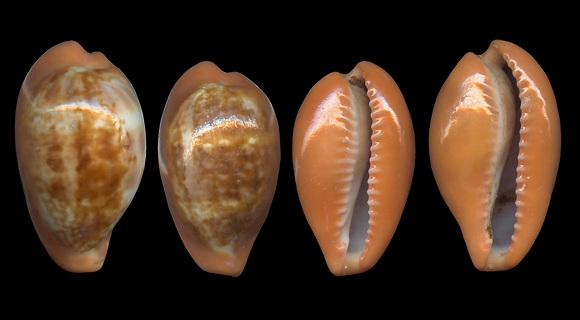
Algarve to Gabon, Azores and Madeira to Mediterranean. Introduced in Pakistan. Omnivorous in the infralittoral, in various environments: stones, rocks, muddy sand, meadows, down to the circalittoral, on coralligenous or muddy bottoms (circa 100m deep).
Original taxon: Cypraea pyrum.
2-5m deep, under rock, near Benghazi, Libya. 27-29mm.
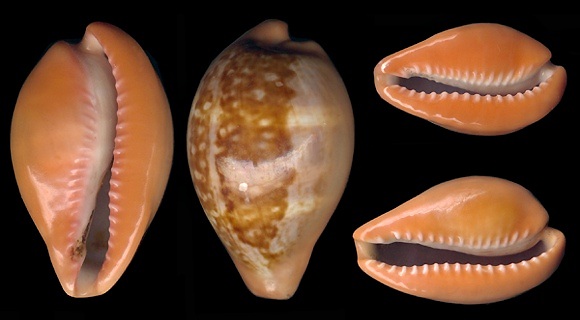
« Shell oval, somewhat oblong, moderately gibbous, and yet slightly bulbous, barely widened at the bottom by the marginal callosities; 23 teeth on the right edge of the aperture, only 15 on the left side; colour of a reddish fawn randomly clouded wsith a darker brown upside, so as to form rounded-off blotches and a sinuous dorsal band; the marginal callosities are of a reddish aurora, often very vivid, and the teeth are white. » – H. M. D. de Blainville: Malacozoaires, ou, Animaux mollusques, Paris circa 1829.
Many synonyms: fulva, guttata, maculata, rufa, variolosa…
Specimens from Haifa, NW. Israel. 30-42mm.
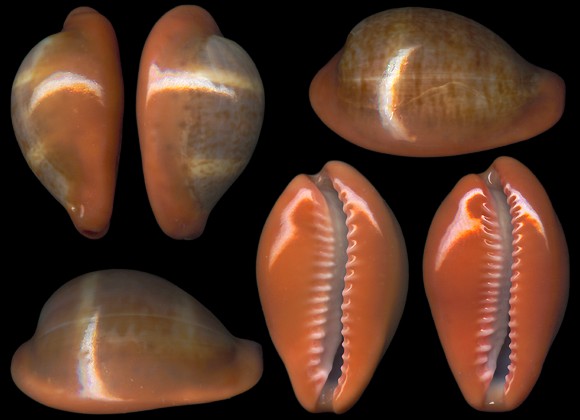
10-12m deep, under rocks among sponges. Cádiz, W. Andalucia, SW. Spain. 30-32mm.
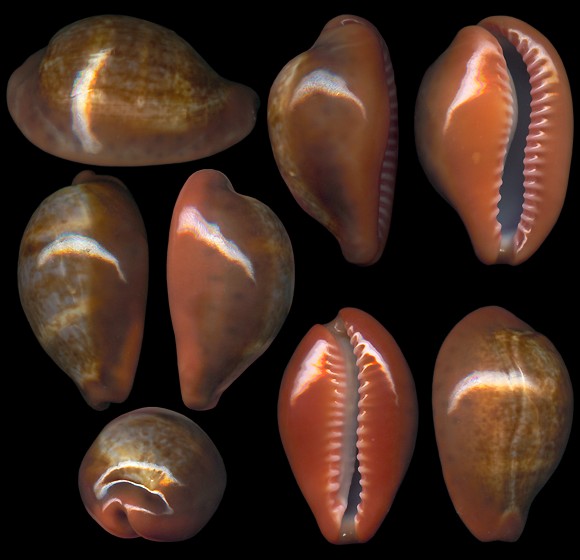
When the margins and the bases are different in colour, the cowries are said to belong to the species pyrum insularum Schilder, 1928 (syn: nigromarginata). – Same spot, 30-32mm. Pale and dark shells coexist. Is insularum really a valid taxon?
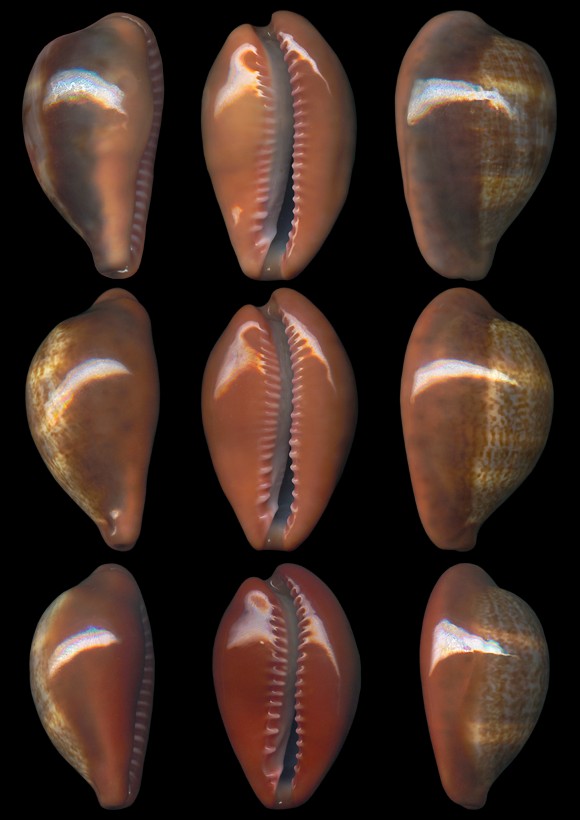
Variation of the ventral colour in the group “insularum”.
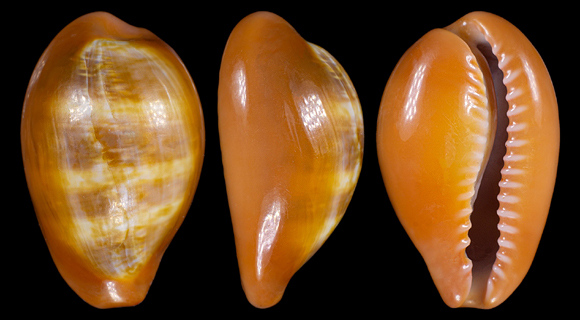
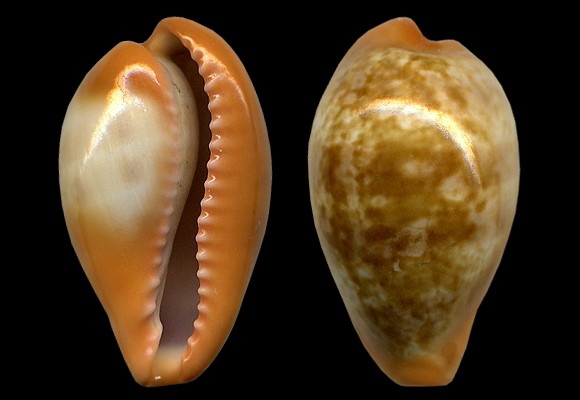
Original pictures provided by F. Roncone (IT).
– (CC BY-NC-SA) –
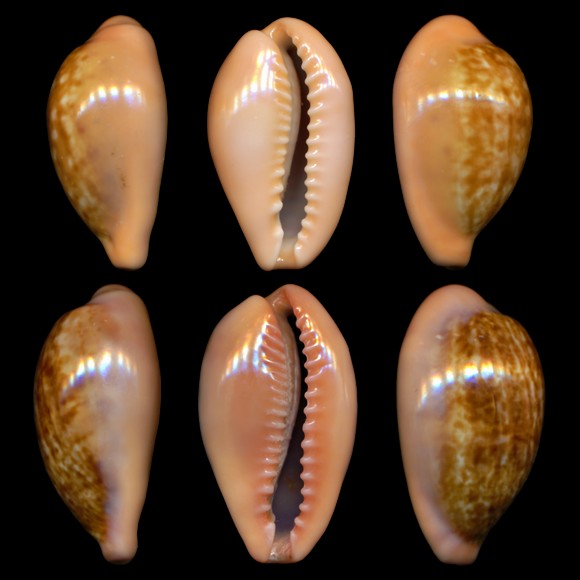
Live collected at 5-10m deep, on stones, Gorée island, Dakar.
The large one shows the typical characteristics of the form “senegalensis” Schilder.
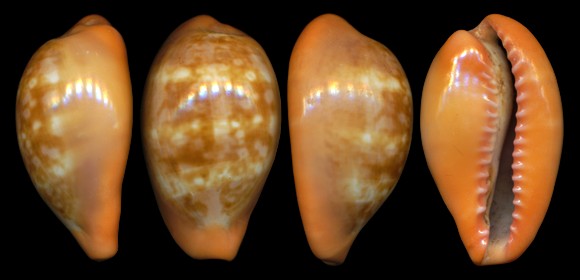
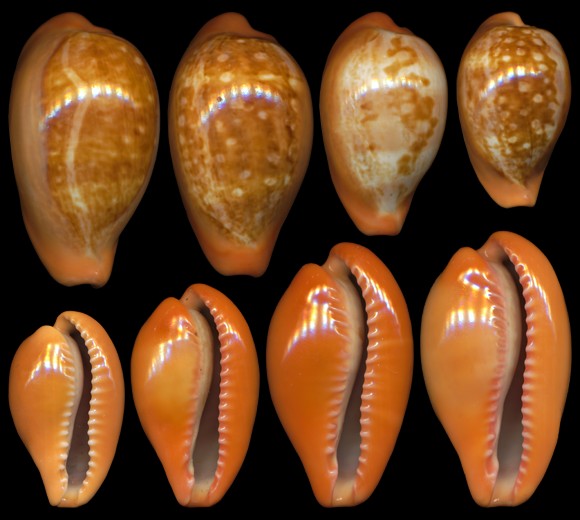
5-6m deep, under stones, Kastellos, Ródos island, Dodecanese, SE. Aegean. 32-44mm.
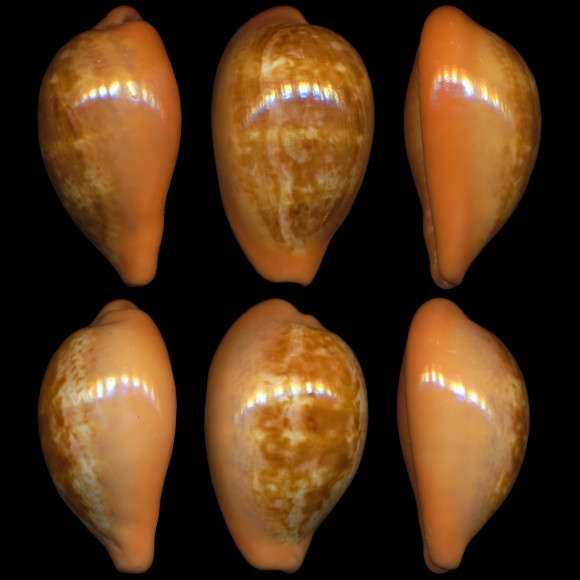
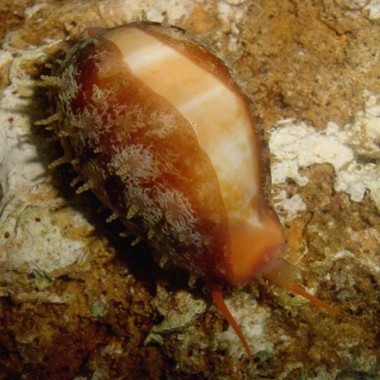
Live specimen of the variant “undata”: three pale bands and some wavy axial marks on the dorsum. Original picture provided by C. Afonso (PT).
– (CC BY-NC-SA) –
– (CC BY-NC-SA) –
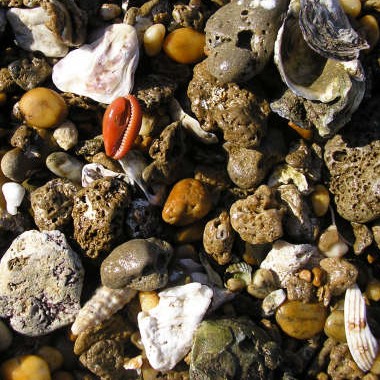
Many empty shells are commonly found in most of the beaches of Cádiz.
Original picture provided by B.J. Muñoz Sanchez (ES) – (CC BY-NC-SA).
Original picture provided by B.J. Muñoz Sanchez (ES) – (CC BY-NC-SA).
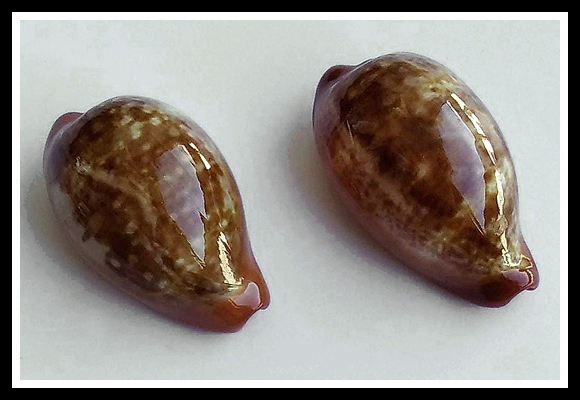
Original picture provided by B.J. Muñoz Sanchez (ES).
– (CC BY-NC-SA) –